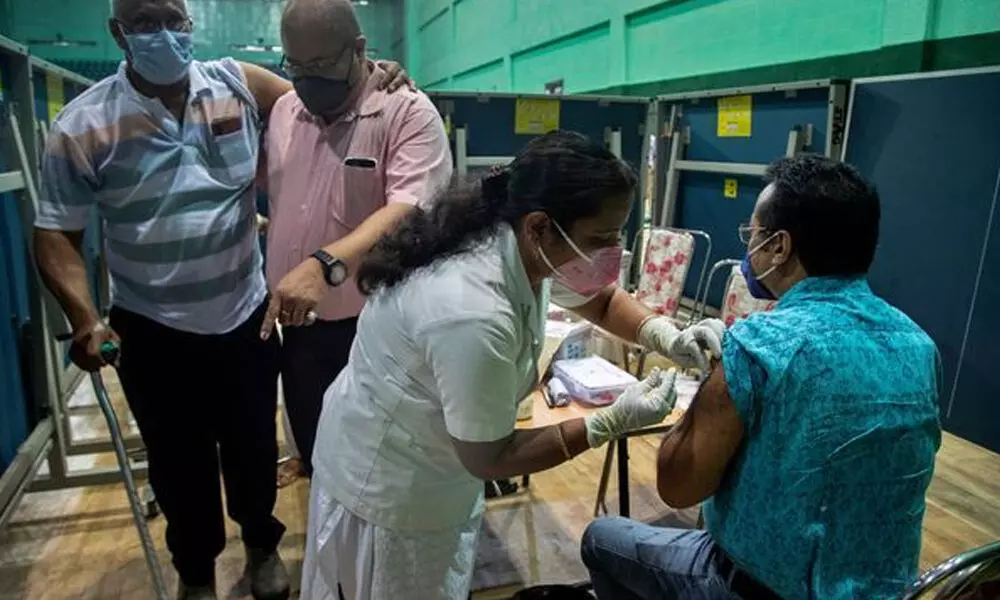Waiving patents not enough to vaccinate all in the world
India, Brazil need their own 'Operation Warp Speed'
image for illustrative purpose

Covid-19 is crushing developing countries such as India, Brazil and South Africa, and it won't help to simply tinker with the patents on life-saving vaccines made by a handful of pharmaceutical companies. It's more crucial that the pharmaceutical industry's manufacturing and distribution expertise be brought to bear on this epic challenge, as Bloomberg Opinion's editorial board and my colleague Lionel Laurent have noted. Access to a recipe without access to an oven and serving trays won't put food in anyone's hands.
There's another element missing from this nascent rescue plan: sophisticated and effective public-private partnerships. Operation Warp Speed, one of the signature successes of the Trump administration, which otherwise bungled its pandemic response, worked because the federal government provided a financial backstop for companies to help them take on the myriad risks of vaccine development.
The White House seeded Warp Speed with $10 billion in federal funds. That money accelerated drug development - by allowing companies to conduct trials and manufacture vaccines on parallel tracks - and offered a guaranteed market. The feds became the buyer of last resort and stripped away production and sales uncertainties that typically slow or hobble drug development. A small group of pharmaceutical companies - including AstraZeneca Plc, GlaxoSmithKline Plc, Johnson & Johnson, Moderna Inc., Novavax Inc., Pfizer Inc. and Sanofi SA - received the lion's share of Warp Speed funding and support. As we now know, Moderna and Johnson & Johnson ultimately brought drugs to market that changed the pandemic's course. Pfizer, which also produced a miracle drug in record time, opted not to take federal money. But it was nevertheless assured that Warp Speed would buy its vaccine if approved. And Pfizer's partner, BioNTech SE, got $445 million from the German government to help the smaller company develop and manufacture its innovative messenger RNA technology. All of this government aid highlights another flaw in the debate over Covid-19 vaccine intellectual property and whether the Biden administration is right to support waiving patents temporarily. The World Trade Organization is reviewing a proposal to do that, and some pharmaceutical companies and Wall Street analysts have complained that any such measure would amount to pickpocketing. Patents and IP laws have always existed, ideally, to protect the brainchildren of innovators and guarantee that they get their rightful share of the bounty from popular or groundbreaking products. In more recent decades, big companies have used patent claims to stifle competitors.
The pharmaceutical industry should be compensated for creativity and risk-taking, of course, and protected from theft. But drug companies, often buttressed with public funding, have also used patents to squelch rivals and maintain lucrative pricing regimes, even when that isn't in the public interest. Just think back to the criticism directed at Gilead Sciences Inc. last year for how it priced remdesivir, which it touted as a Covid-19 remedy.
The vaccines on the market now didn't spring into existence solely because of private capital. Taxpayers helped foot a substantial part of the bill, and their interests should be served as well. Moderna, which arguably would never have brought a drug to market without government aid, has already said it won't enforce its vaccine patent rights during the pandemic. So the Biden administration has some reason to support the patent waiver under consideration at the WTO. But even if the waiver goes through, it won't remove the bigger obstacles in the way of getting vaccines to developing countries. That will take more public-private partnerships.
For an Operation Warp Speed to take root in countries such as India or Brazil, their political leaders will need as much public leverage as the US and Europe were able to apply.
Unfortunately, these countries' leaders, Narendra Modi in India and Jair Bolsonaro in Brazil, have both paraded doctrinaire free-market agendas at the expense of constructive public planning. Engineering a public-private response to Covid-19 may elude them. (Bloomberg)

